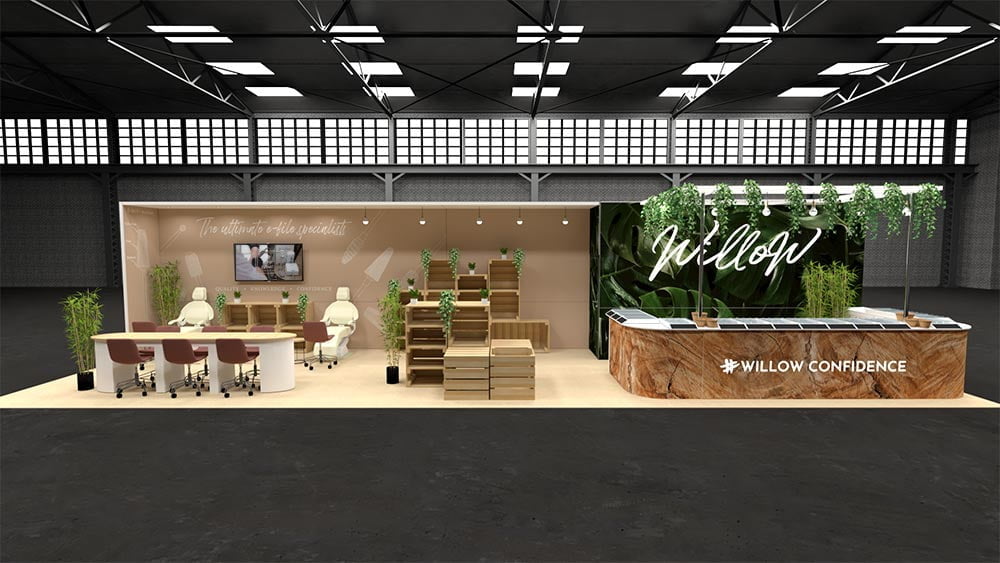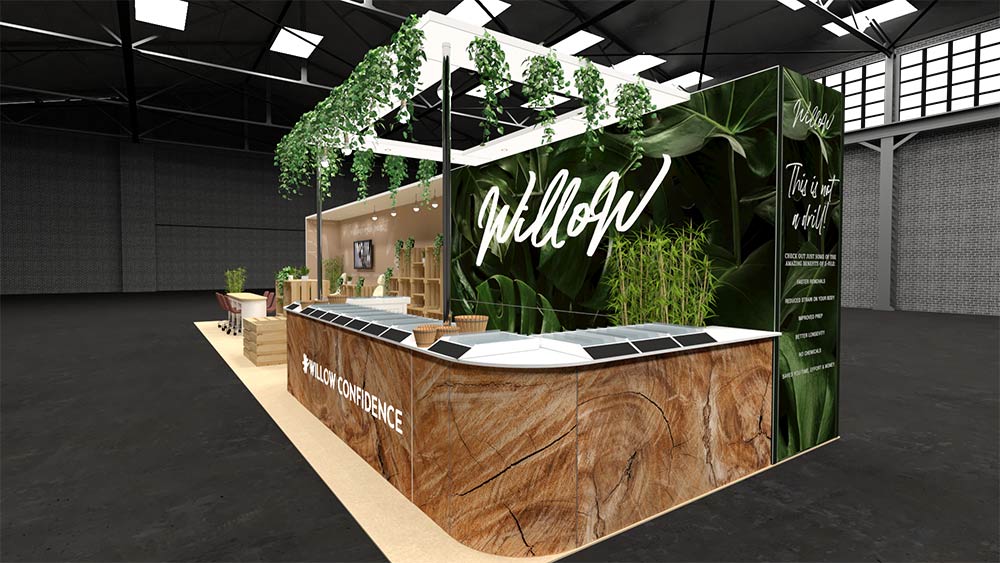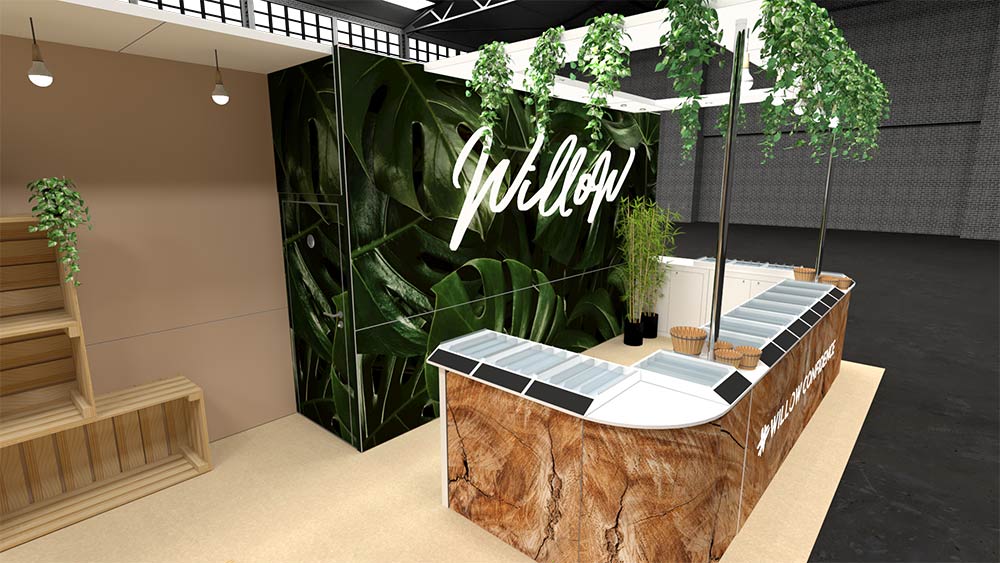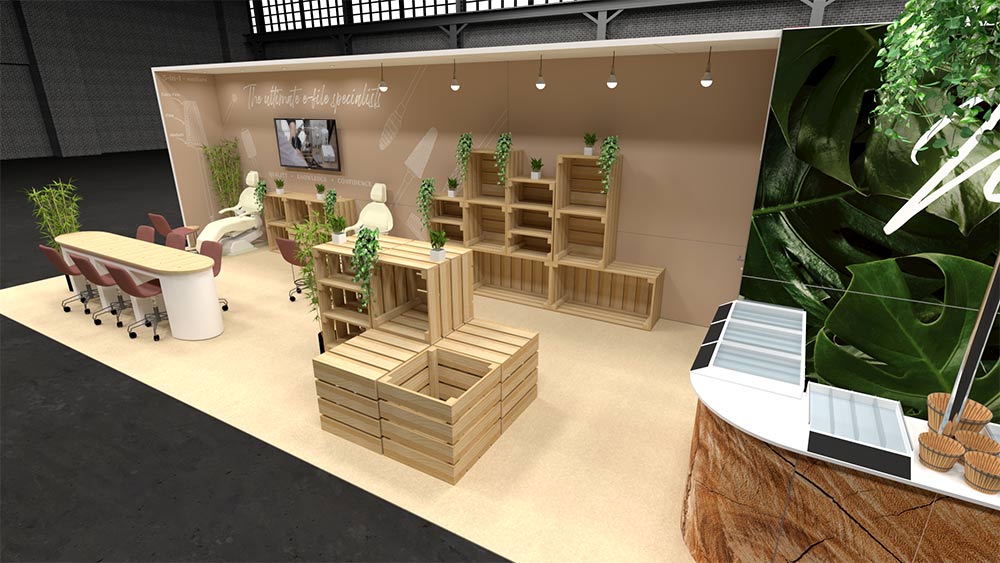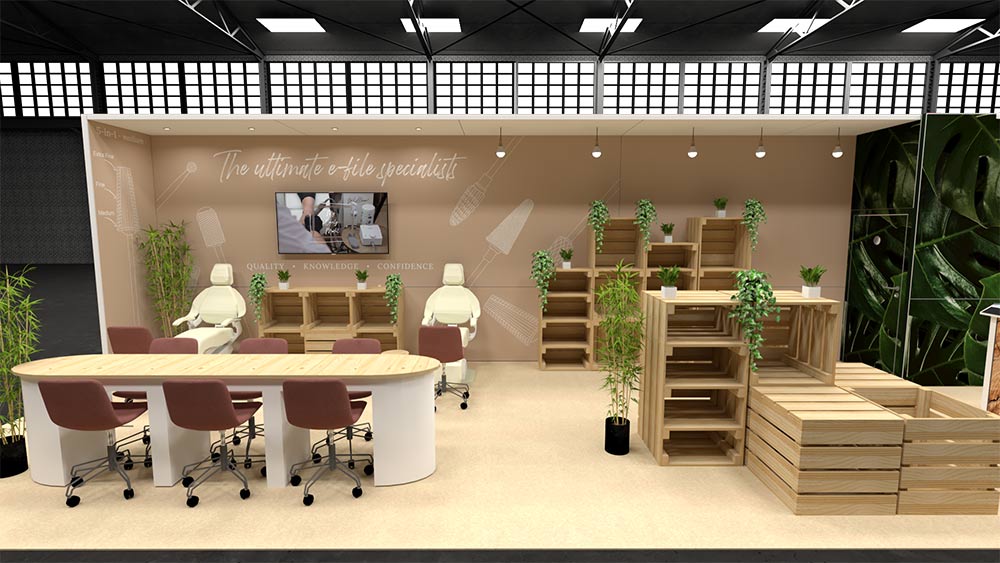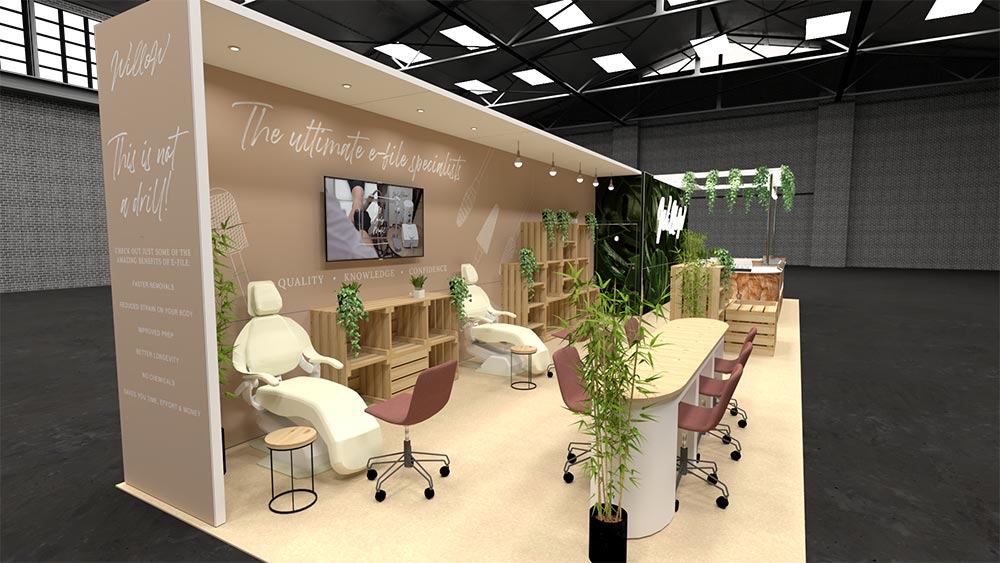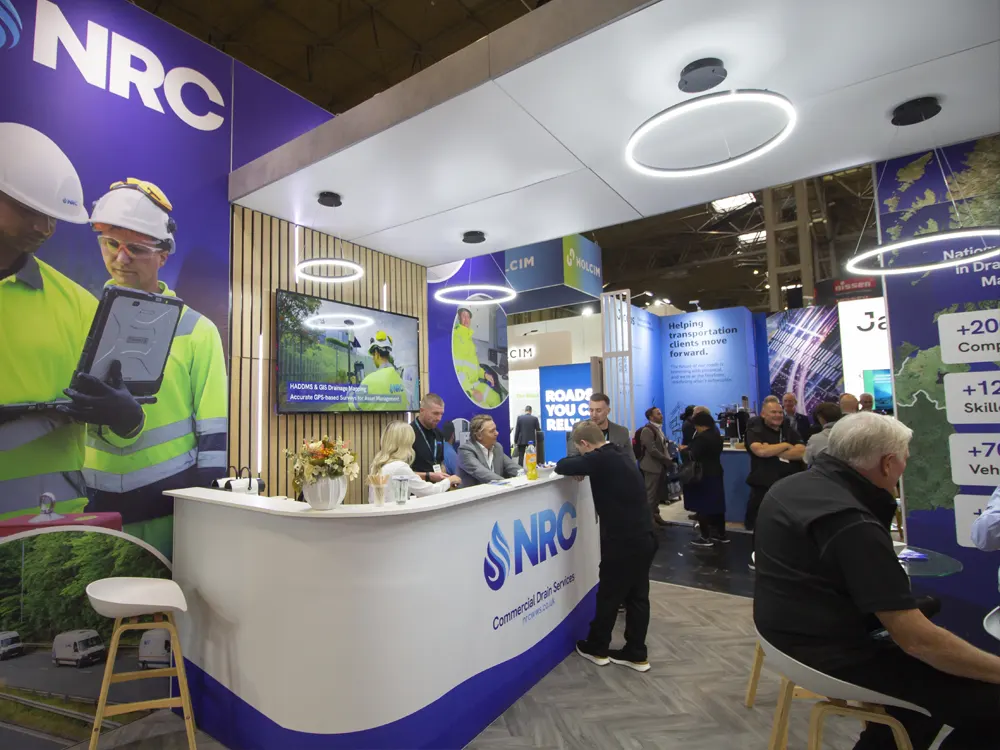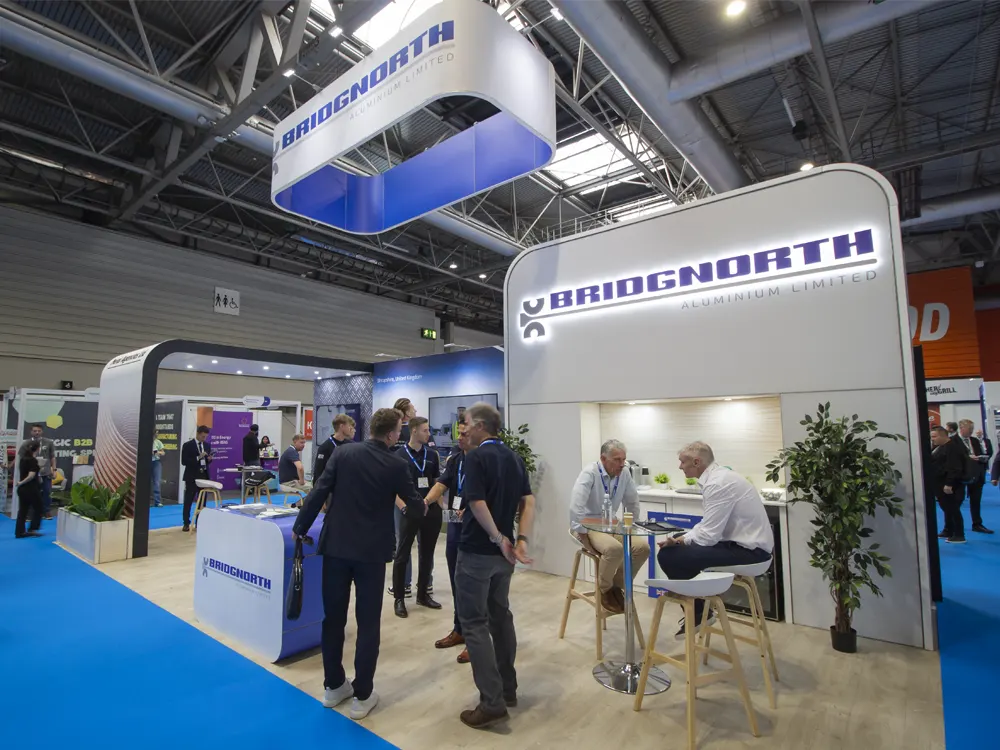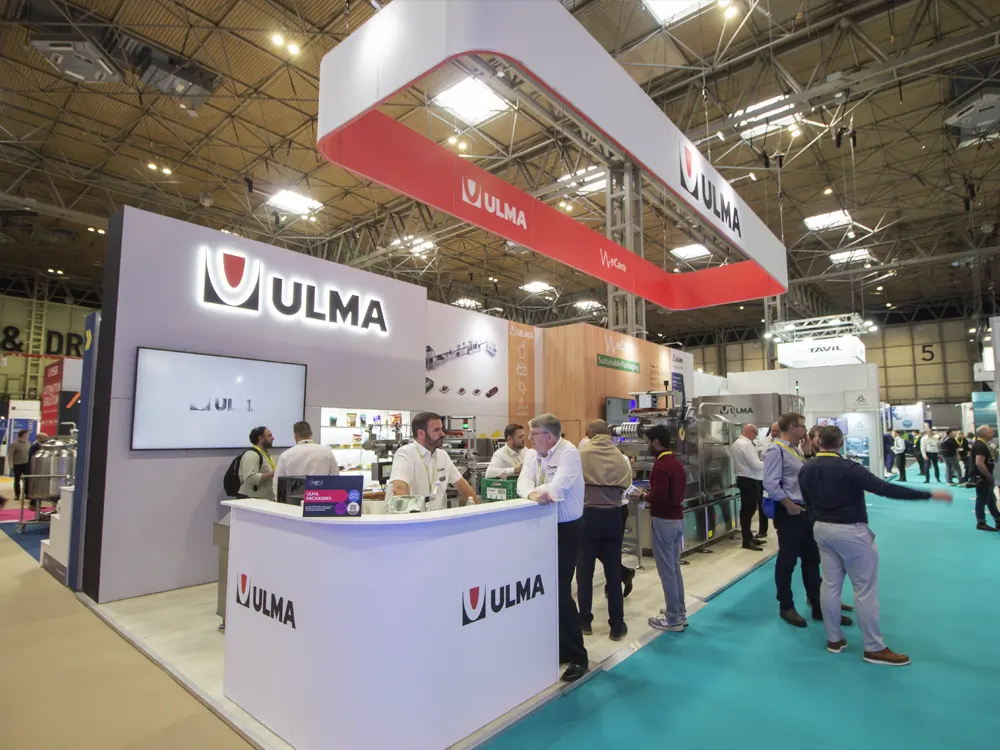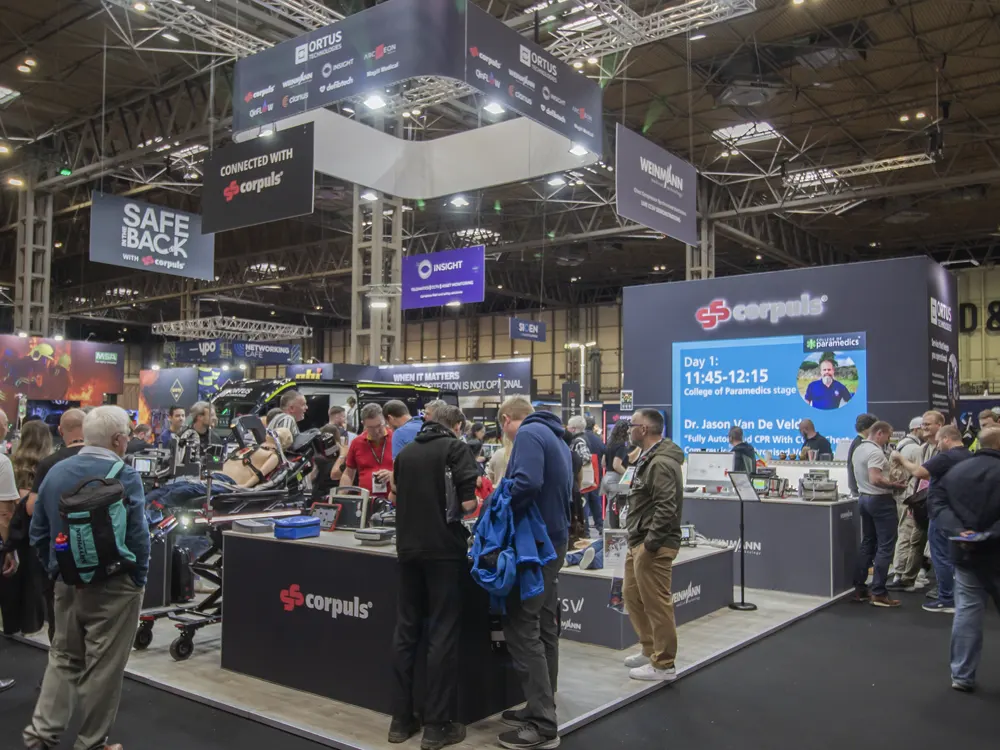Trade Show ROI: How to Measure, Improve & Maximise Event Performance
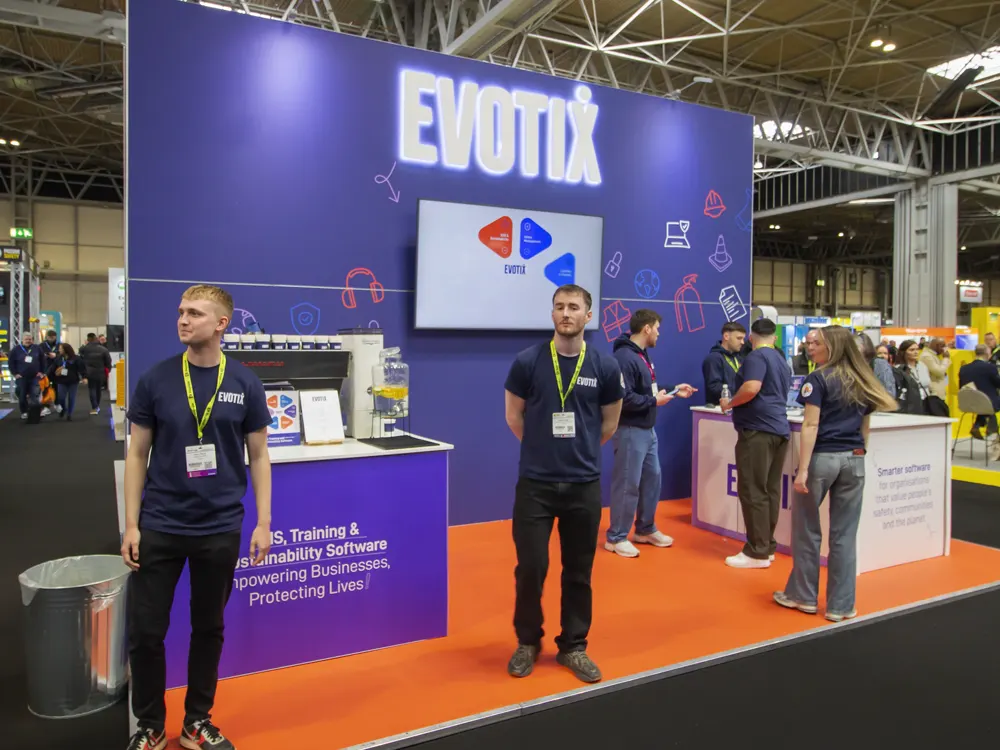
Trade shows remain one of the most powerful marketing channels for B2B companies, with face-to-face interactions driving real business results. However, with significant investments in booth space, travel, staffing, and materials, understanding your trade show ROI is essential for justifying budgets and improving future performance.
Are you a first-time exhibitor or a seasoned trade show veteran? This guide will walk you through everything you need to know about measuring ROI from trade shows, calculating your returns accurately, and implementing proven tactics to improve trade show performance.
Claim your free, no-obligation 3D stand design
What Is Trade Show ROI?
Trade show ROI (Return on Investment) measures the financial return you generate from participating in an exhibition compared to the total cost of your involvement. It’s the ultimate performance indicator that tells you whether your investment was worthwhile.
Today, trade show ROI encompasses multiple value dimensions:
Financial Returns: The direct revenue generated from leads and sales attributed to the event.
Brand Awareness: Increased visibility and recognition within your target market, which may not convert immediately but builds long-term value.
Market Intelligence: Insights gained about competitors, industry trends, and customer needs that inform your broader business strategy.
Relationship Building: Strengthen existing customer relationships and establish new partnerships that create future opportunities.
Lead Generation: Quality prospects who enter your sales pipeline and may convert over weeks or months following the event.
Understanding trade show ROI holistically means recognising that not all returns appear in your bank account immediately. Some shows deliver quick wins, while others plant seeds for long-term growth.
Key Metrics: Measuring ROI from Trade Shows
Measuring ROI from trade shows requires tracking both quantitative and qualitative metrics. Here are the essential KPIs that give you a complete picture of your event performance:
Each is explained in more detail below. We’ve included specific examples of things you can track to measure your stand’s performance at trade shows.
Lead Generation Metrics
Tracking lead generation metrics shows how effectively your event efforts turn booth visitors into qualified sales opportunities.
- Total Leads Captured: The raw number of contacts collected during the show.
- Marketing Qualified Leads (MQLs): Aim to generate at least one MQL for every seven people engaged at your booth.
- Sales Qualified Leads (SQLs): Leads that meet your criteria for direct sales follow-up.
- Lead Quality Score: A rating system that evaluates each lead’s fit and intent.
Cost Efficiency Metrics
Measuring cost efficiency helps you see how much you’re spending to attract, qualify, and convert each lead into a customer.
- Cost Per Lead (CPL): Total event cost divided by the number of leads generated.
- Cost Per (MQL): Total investment divided by marketing qualified leads acquired.
- Cost Per Acquisition (CPA): Total cost divided by customers actually acquired from the event.
Conversion Metrics
Monitor your conversion metrics to measure how effectively your trade show leads move through the sales funnel and generate revenue.
- Lead-to-Opportunity Rate: Percentage of leads that progress to sales opportunities.
- Lead-to-Customer Rate: Percentage of leads that ultimately become paying customers.
- Sales Cycle Length: Time from initial contact to closed deal for trade show leads.
- Average Deal Size: Revenue generated per closed deal from event leads.
Engagement Metrics
Engagement metrics help you understand how well your booth attracted, interacted with, and maintained interest from event attendees.
- Booth Traffic: Number of visitors who stopped at your booth.
- Engagement Quality: Duration and depth of conversations with prospects.
- Demo Requests: Number of product demonstrations scheduled.
- Meeting Bookings: Appointments set during or immediately after the event.
- Social Media Reach: Impressions, mentions, and engagement from event-related content.
Pipeline Metrics
These pipeline metrics help you evaluate the revenue potential and sales effectiveness of leads generated from your trade show.
- Pipeline Value Created: Total potential revenue added to your sales pipeline.
- Pipeline Velocity: The speed at which trade show leads move through your sales funnel.
- Win Rate: Percentage of trade show opportunities that close successfully.
Long-Term Value Metrics
Tracking long-term value metrics helps you assess the lasting impact of your trade show on revenue, brand strength, and strategic opportunities.
- Customer Lifetime Value (CLV): Projected lifetime revenue from customers acquired at the event.
- Brand Lift: Changes in brand awareness, perception, or consideration measured through surveys.
- Partnership Opportunities: Strategic relationships or collaborations initiated at the show.
Pro Tip: Don’t track everything at once. Select 5-7 key metrics that align with your specific trade show objectives and measure those consistently across events.
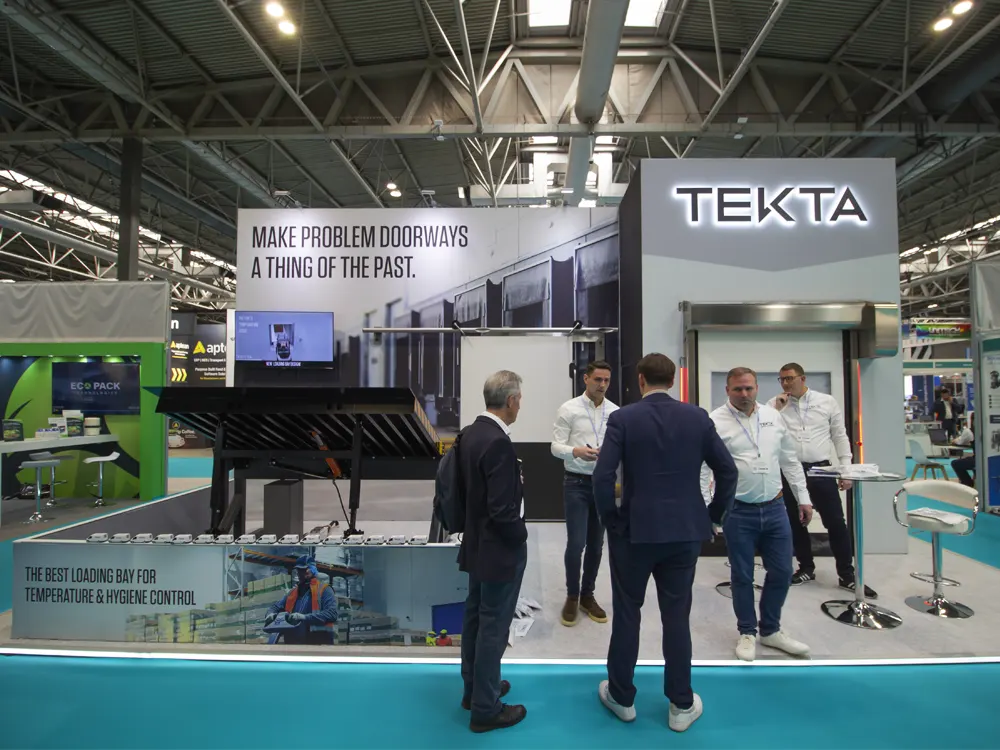
How to Calculate Trade Show ROI
Calculating trade show ROI accurately requires accounting for all costs and properly attributing revenue. Here’s your step-by-step framework:
Step 1: Calculate Your Total Investment
Add up every expense associated with the trade show. Leave nothing out, as hidden costs can significantly impact your true ROI.
Pre-Show Costs:
- Booth space rental
- Booth design and construction
- Graphics, banners, and signage
- Promotional materials and giveaways
- Pre-event marketing campaigns
- Staff training sessions.
During-Show Costs:
- Travel expenses (flights, accommodation, meals)
- Shipping and logistics
- Technology and equipment rentals
- Staffing costs (salaries or hourly wages)
- Lead capture tools and subscriptions
- On-site services and utilities.
Post-Show Costs:
- Follow-up campaigns and materials
- CRM integration and data processing
- Post-event analysis and reporting
- Lead nurturing programs.
For example, your total trade show investment might look like this:
- Booth space: £8,000
- Booth build and graphics: £12,000
- Travel and accommodation: £5,000
- Marketing materials: £2,000
- Pre and post-show campaigns: £3,000.
Total Investment: £30,000
Step 2: Measure Your Returns
Track the revenue generated from leads captured at the trade show. This includes:
Closed Deals: Sales directly attributed to trade show leads
Pipeline Value: Potential revenue from opportunities still in progress
Influenced Revenue: Deals where the trade show played a supporting role
Use a CRM to tag leads with their source and track their progress through your sales cycle. Be patient. Some trade show leads take 3-6 months or longer to convert, especially in industries with complex sales cycles (e.g. B2B or niche services).
Example Returns:
- Closed deals within 6 months: £45,000
- Active pipeline value: £60,000 (projected close rate: 30% = £18,000 expected)
- Total Returns: £63,000 (closed + projected).
Step 3: Apply the ROI Formula
The basic formula for calculating trade show ROI is:
ROI = [(Revenue – Investment) / Investment] × 100
Using our example:
ROI = [(£63,000 – £30,000) / £30,000] × 100
ROI = (£33,000 / £30,000) × 100
ROI = 110%
This means you generated £1.10 for every £1 invested, representing a strong positive return.
Understanding Your ROI Result
Here’s the most important part. If your calculations are accurate, you can get a clear picture of your trade show return on investment:
- Positive ROI (above 0%): You’ve generated more revenue than you spent. Success!
- Negative ROI (below 0%): Your costs exceeded returns. Time to analyse what could be improved and adjust your approach.
- Break Even (0%): You’ve covered costs but haven’t generated profit. Consider whether other intangible benefits justify participation.
Advanced ROI Considerations
If you’re still wondering if your trade show exhibitions are worth it, here are some other aspects to consider:
Account for Sales Cycle Length: If your average sales cycle is 9 months, measure ROI at 9-12 months post-event rather than immediately after.
Calculate Lifetime Value: For businesses with recurring revenue or repeat customers, multiply the first purchase value by the expected customer lifetime to get accurate ROI.
Include Influenced Revenue: Use multi-touch attribution models to credit trade shows for deals where they played a supporting role, even if they weren’t the original lead source.
Benchmark Against Alternatives: Compare your trade show ROI to other marketing channels. If your digital campaigns generate 200% ROI while trade shows deliver 50%, you need to reassess your strategy.
Get Your Free 3D Stand Design
See exactly how your exhibition stand will look before you commit. Our free 3D design service helps you visualise layouts, branding, and features so you can make confident decisions.
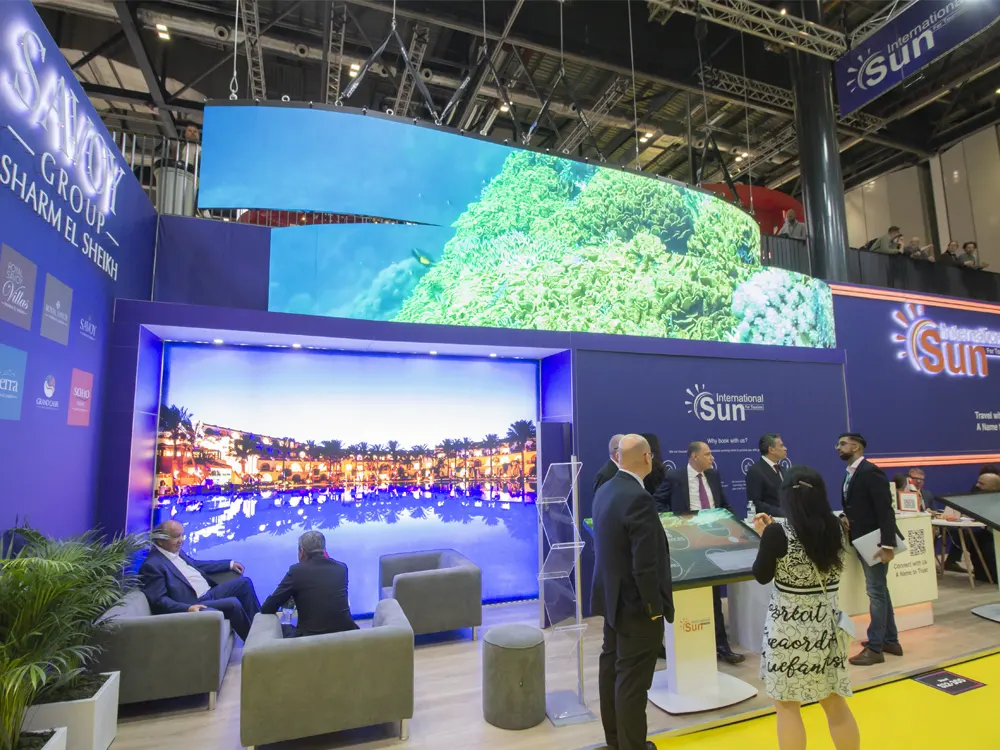
Tactics to Improve Trade Show Performance
Maximising your trade show ROI requires strategic planning before, during, and after the event. Here are proven tactics across all three phases:
Pre-Show Strategies
Set Clear, Measurable Objectives
Define specific goals beyond “generate leads” and be realistic. Examples include:
- Capture 150 qualified leads with a 20% MQL rate.
- Schedule 25 product demonstrations.
- Launch new products to 500+ attendees.
- Close £100,000 in pipeline opportunities.
Promote Your Presence Early
Build anticipation and drive qualified traffic to your booth:
- Email existing customers and prospects 4-6 weeks before the event
- Run targeted social media campaigns announcing your booth number
- Create pre-show offers or incentives for booth visits
- Partner with event organisers for attendee list access
- Schedule meetings with key prospects before the show opens.
Train Your Booth Staff
Your team makes or breaks your trade show success:
- Brief staff on goals, messaging, and qualifying criteria
- Practice elevator pitches and product demonstrations
- Assign clear roles (greeters, qualifiers, closers, demonstrators)
- Establish lead capture processes and scoring systems
- Prepare staff to handle common objections and questions.
Design an Engaging Booth Experience
Create a space that attracts and retains attention:
- Use bold visuals and clear messaging visible from 10 metres away
- Incorporate interactive elements (demos, games, touchscreens)
- Ensure open layouts that invite traffic rather than blocking it
- Invest in quality technology that works reliably
- Prepare charging stations or refreshments to draw visitors.
Get a free stand design for your next trade show!
Optimise Your Lead Capture System
Technology streamlines data collection and follow-up:
- Use digital lead capture apps instead of paper forms
- Integrate lead capture with your CRM in real-time
- Create qualification forms that identify hot prospects
- Develop lead scoring criteria to prioritise follow-up
- Test all technology thoroughly before the event.
If you’ve done all this, you’re ready to start thinking about the day of the trade show.
During-Show Tactics
Engage Authentically
Quality conversations trump quantity:
- Ask open-ended questions to understand visitor needs
- Qualify leads properly rather than collecting every badge scan
- Focus on building relationships, not just collecting contacts
- Personalise conversations based on attendee interests
- Remember to listen more than you pitch.
Capture Detailed Lead Information
Rich data enables better follow-up:
- Record specific pain points and interests
- Note the timeline and budget information
- Capture decision-maker roles and buying authority
- Document the next steps agreed upon during the conversation
- Add personal details (memorable moments) for personalised follow-up.
Create FOMO (Fear of Missing Out)
Drive booth traffic throughout the event:
- Host hourly product demos or presentations
- Run contests or prize draw at scheduled times
- Offer exclusive show specials with deadlines
- Display social proof (customer testimonials, case studies)
- Use crowd-gathering tactics during slow periods.
Network Strategically
Trade shows offer more than booth opportunities:
- Attend speaking sessions where prospects gather
- Visit competitor booths to gather market intelligence
- Connect with industry influencers and potential partners
- Participate in networking events and social functions
- Schedule off-floor meetings with high-value prospects.
Monitor and Adjust in Real-Time
Stay agile and responsive:
- Track lead counts and quality throughout the day
- Identify peak traffic times and staff accordingly
- Adjust messaging based on what resonates
- Address booth weaknesses immediately
- Motivate the team with progress updates.
All being well, you’ve had a successful exhibition! Now it’s time to consider your trade show ROI.
Post-Show Follow-up
Act Quickly on Hot Leads
Speed converts opportunities:
- Contact hot leads within 24 hours while interest is fresh
- Reference specific conversation details for personalisation
- Send promised materials or information immediately
- Schedule next-step meetings or calls
- Keep momentum alive with multiple touchpoints.
Segment and Nurture Your Leads
Different leads require different approaches:
- Categorise leads by interest level and timeline
- Create tailored nurture campaigns for each segment
- Send relevant content based on expressed needs
- Use marketing automation for efficient scaling
- Track engagement to identify warming prospects.
Measure and Analyse Performance
Learn from every event:
- Calculate all ROI metrics against pre-show goals
- Survey booth staff for qualitative feedback
- Identify top-performing tactics and messaging
- Analyse lead quality and conversion rates over time
- Document lessons learned for future events.
Close the Loop with Sales
Alignment drives conversions:
- Brief the sales team on lead context and conversations
- Establish clear lead handoff processes
- Track lead progression through the sales funnel
- Gather feedback on lead quality from sales
- Adjust qualification criteria based on results.
Maintain Visibility
Stay top-of-mind after the event:
- Share post-event content (booth photos, highlights)
- Tag and thank visitors on social media
- Send recap emails with valuable resources
- Invite contacts to connect on LinkedIn
- Continue thought leadership to reinforce positioning.
Remember, your post-show follow-up often determines whether your investment delivers exceptional ROI or disappointing results.
Additional Performance Boosters
If you want to take things even further, here are a few ways you can maximise your trade show ROI:
- System Integration: Integrate all systems for seamless data flow to make tracking your ROI easier for everyone in your business to understand.
- Try Different Incentives: Experiment with various giveaways and incentives to see which are the most effective at engaging your target audience.
- Measure Your Results: Compare results across multiple shows to increase your knowledge of effective exhibiting. Treat each trade show as a learning opportunity by maintaining consistent measurement frameworks across events.
Key Takeaways for Measuring Trade Show ROI
With 81% of trade show attendees having purchasing authority, you have a huge opportunity to generate new business.
Remember the Following:
- Define success beyond just lead count; quality matters more than quantity.
- Track a balanced scorecard of financial and non-financial metrics.
- Calculate ROI accurately by accounting for all costs and properly attributing revenue.
- Invest in pre-show promotion and post-show follow-up, not just the event itself.
- Continuously test, learn, and refine your approach based on data.
The exhibitors who win at trade shows aren’t necessarily those with the biggest booths or flashiest giveaways; they’re the ones who plan strategically, execute professionally, and follow up relentlessly. Start implementing these practices at your next event and watch your trade show ROI soar.
Ready for Your Next Exhibition?
Exhibitions are a chance to meet real customers, have real conversations, and create momentum that no digital campaign can match. But that opportunity is easy to miss without the right preparation.
Plus Exhibition helps brands take control of their event presence. Whether you’re exhibiting for the first time or looking to improve your approach, we’re here to support you with practical advice and a stand that gets noticed for the right reasons.


